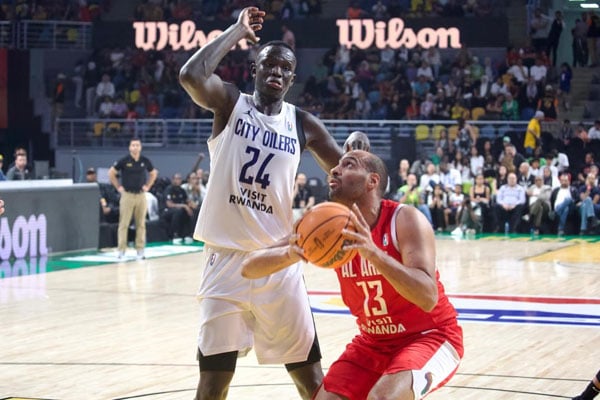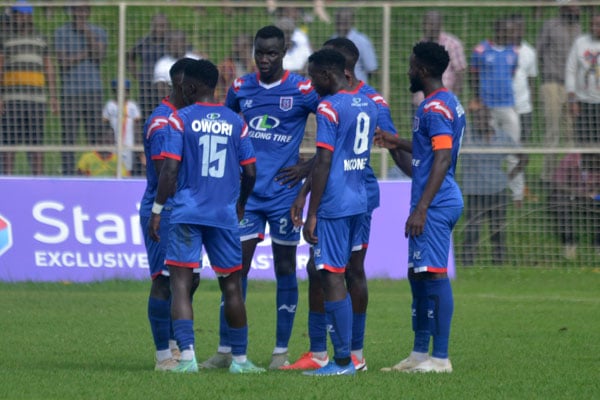Broken system continues to fail retired football players
What you need to know:
SHORT-TERMISM. In this period of electioneering, acts like helping out Ssekatawa will doubtless score crucial points for Fufa president Moses Magogo, who is seeking a fresh four-year mandate. What it won’t address decisively is the fact that a number of retired footballers and ex-internationals operate with the handbrake on
All that glistens lustrously is not gold. For Issa Ssekatawa, who was nominally likened to the precious metal when he was at the peak of his powers, that dictum rings ever so true.
After he proved extraordinarily durable as a finisher by winning three proverbial golden boots in succession during the early 1980s, Ssekatawa’s gargantuan appetite for goals invited his legions of adoring fans to christen him ‘Golden Boy’.
Consigned to the out-tray of retirement, Ssekatawa has always found life less golden and more doomed to irrelevance.
After fracturing his leg in February, he found a Shs6m quotation that had been shoved in his face prohibitive.
Cheaper options provided nothing more than fleeting relief. When the pain came back recently, it not only carried with it a furious vengeance but also the prospect of his leg being amputated.
The unremittingly bitter experiences of retired footballers are a quintessentially Ugandan problem. As laudable a gesture as knocking Shs5m from Ssekatawa’s theatre fees is, Fufa’s response to the ex-international’s predicament is revelatory of how the football governing body is chillingly unprepared to deal with a much bigger problem.
Handouts to retired footballers showing fragility is a classic case of treating a symptom and not the malady.
In this period of electioneering, such short-termism will doubtless score crucial points for Moses Magogo, who is seeking a fresh four-year mandate.
What it won’t address decisively is the fact that a number of retired footballers operate with the handbrake on. This problem cannot be wished away by a bout of tokenism.
There are no two ways about it, Fufa has to empower players whose names roll off the slavering tongues of fans to deal with life after retirement from football.
Make no mistake, Fufa’s chipping in with a contribution to address a retired footballer’s plight shouldn’t be frowned upon per se.
But while it shouldn’t be regarded with condescension, it sure invites complicated love simply because it isn’t sustainable. If Fufa did this with every retired footballer in distress - of which they are many - its finances would thunder toward the red.
There are areas (coaching and media to mention but two) which Fufa could impress upon active footballers as potential cash cows in retirement.
It should be noted that most footballers devote, on average, 35 years of their lives to the beautiful game.
Most of them - Ssekatawa for instance - grow up knowing nothing more than football. They are as such less comfortable stepping out of their comfort zone.
Ssekatawa fractured his leg in the said comfort zone. If the ‘Golden Boy’ was earning his keep and not just having a kick about with his fellow ex-internationals, he would never have been forced to pull the begging bowl as he did this past week.
The system has failed him and many others.
What we now know....
We know that the KIU Titans won the Easter Cup, taking the final hurdle ahead of Pemba Warriors.
Bwanga Kazunguzibwa, who poured a decisive 20 points in a passionate display for the Kansanga-based outfit, was named the tournament MVP.
We know that the Titans will go into this year’s National Basketball League with the jury still out on them.
The club’s postseason blues have made them the butt of every joke in Ugandan club basketball circles.
Winning the inaugural Easter Cup won’t put an end to the jokes.
Ugandan cricket finds great utility in coach Tikolo
D uring his playing days, Steve Tikolo used his wide range of strokes to get the job down insofar as the situation demanded. He relied on his eye as much as technique to either get the scoreboard ticking in punishing style or obdurately take the sting out of an attack.
Tikolo’s astute captaincy, which took Kenya to the business end of the 2003 Cricket World Cup against all odds, showed him to fit the long-standing type that effortlessly transitions from playing to coaching. After the heady heights of 2003, Tikolo played on for six more years before calling time on his international career.
In 2012, Tikolo accepted to work with Uganda’s batsmen in the nets. Many of them spoke of him glowingly after rediscovering the fire in their bellies as Uganda won the ICC Division One Twenty20 title on home soil. A year later, Tikolo was back in his native country coaching the under-19 team. It is a measure of his standing that – at the ripe old age of 42 – Kenya coaxed him out of retirement to feature in the 2013 ICC World Twenty20 qualifier. Tikolo’s undiminished appetite for runs did nothing more than paper over cracks as Kenya failed to qualify for the 2014 ICC World Twenty20.
The failure saw the noose around Robin Brown tighten. With the Zimbabwean coach sent on gardening leave, Tikolo was asked to take the reins on an interim basis. He retired from international cricket for a second time to give a whole approach to coaching. As coach of Kenya’s senior cricket team, Tikolo conducted himself with a friendly but slightly fervent air that is common among people holding such a position.
A player mutiny, however, led to his swift downfall. Senior players were not happy with his hard-nosed approach that saw them incur fines for missing training sessions and the like. Those close to him say that Tikolo insists that he did not come down hard on the players, but had quite simply expressed his disagreement with their lifestyles.
Tikolo responds with a tone of weary exasperation when quizzed about his short lived coaching spell in Kenya. “That is history; I’m now part of Uganda,” he said after sealing a series win over his native country on Wednesday.
The series, which straddled the long Easter holiday with the ovals in Kyambogo and Lugogo splitting five 50-over matches, always had that brief bitter past as a subplot. Kenyan cricket scorns Tikolo as an emblem of the past, but always seems to crave his approval nonetheless. It must crave him now even more after suffering a stunning 4-0 series loss at his hands.
Born with a blood instinct for leadership, Tikolo is proving to be quite the asset for Ugandan cricket. Kenya’s loss appears to be very much Uganda’s gain.
Batting, the Achilles’ heel of Ugandan cricket, has undergone a remarkable transformation. Cricket Cranes’ successful run chases during the Easter Series had the stamp of Tikolo – sen-sible batting.
It is refreshing to see Ugandan batsmen showcase a penchant for putting up partnerships. The adherence to basics like rotating strike as one patiently waits to put away bad balls is just as endearing.
The presence of competent left hand bats like Arthur Kyobe and Shahzad Kamal to in Tikolo’s own words “disrupt the field” has also gone a long way to address Uganda’s underbelly. The ICC World Cricket League Division III tournament cannot start soon enough!




